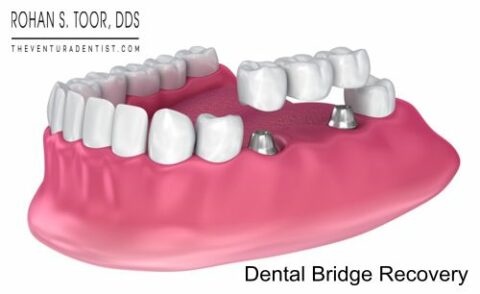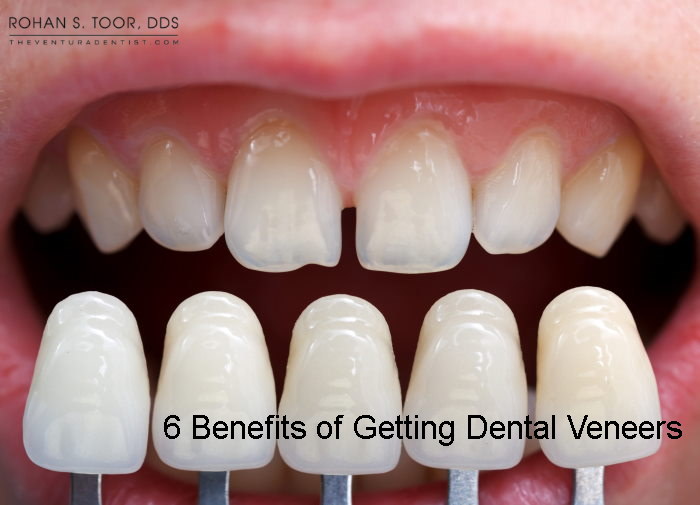
Dental Bridge Recovery
Dental bridges are fixed restoration appliances that connect an artificial tooth to nearby teeth or implants. A traditional bridge involves a dental crown adhered to both the surrounding teeth with a fake tooth. An implant bridge uses dental implants placed in the patient’s jawbone as a base. Both types of bridges can be easily cared for by simply flossing, using mouthwash, and brushing your teeth daily.
How Long Is the Recovery Period After Getting a Dental Bridge?
A dental bridge takes around 2 weeks to adjust fully. It’s best to stay away from very hot or cold foods during your recovery. Use toothpaste for sensitive teeth during the first few days to help with pain and discomfort.
What Is the Aftercare for Teeth After a Dental Bridge?
Failure to maintain optimal oral hygiene around the bridge may result in the development of periodontal problems. As a result, the abutment teeth supporting the resin-bonded dental bridge may start to hurt and become loose due to bone resorption. Here are the things that you should religiously do to protect your teeth.
- Brushing Your Teeth – Make sure that you brush your teeth at least twice a day. This will ensure that food and bacterial debris around the dental bridges are entirely removed at the end of the night.
- Flossing – Make it a habit of flossing at least once a day. This will help maintain optimal oral hygiene around the fixed denture. Our expert dental hygienists will guide you through the process, ensuring that you learn the correct method of flossing between your teeth.
- Mouthwash – Use recommended amounts of mouthwash every day to maintain optimal oral hygiene. You can use any mouthwash available on the market. On the other hand, your dentist may advise a medicated mouthwash if you are at a higher risk of developing gum problems.
- Visit your dentist regularly – Scheduling regular checkups will help avoid dental bridge problems. Your dentist will also check to make sure the appliance is intact.
You can fully maximize the benefits of dental bridges by doing these aftercare tips daily.
What Can You Expect After Getting a Dental Bridge?
You can expect your teeth to be sensitive, your gums to be swollen, and some pain. There could also be speech impediments because of the numbness. Implant-supported bridges will take longer to heal than traditional bridges and may be more painful.
What to Avoid When You Have a Dental Bridge?
Patients with dental bridges should avoid eating hard things like chips and hard candies, and Sticky things like gum and caramel until the bridge is fully healed. When the dental bridge has fully healed, you can eat most foods but make sure to properly clean your teeth after. Smoking and tobacco can also delay the healing process, damage the gum tissue, and shorten its lifespan.
How Long After a Bridge Can I Eat?
For the first few days, it may be useful to stick to a softer diet because your gums and teeth in the area where the dental bridges are placed may still be sensitive. It is advised to stay away from sticky foods for the first 24 hours after getting the dental bridges. Following that, you are free to eat, drink, and care for your teeth as usual.
Can You Brush Your Teeth After a Bridge?
Yes. You can brush the area surrounding the bridge during the first 24 hours. It is important to make sure that no food residue will be stuck in the area even if the teeth feel slightly sensitive after a dental bridge has been placed.
How Do I Clean Under My Bridge?
It is recommended to keep brushing, flossing, or using an interdental cleaner under the bridge. Since the bridges are attached, a floss spool cannot fit through the spaces between the teeth units from the top (occlusal surface). Hence, using ordinary floss to floss between the bridge is not recommended and it may even compromise the integrity of the appliance if done regularly.
What other details should one be aware of regarding Dental Bridges besides recovery?
Replace missing tooth with a dental bridge and can improve your ability to speak, chew, and maintain the structure of their mouth. Other considerations for
how much does a dental bridge cost, the types of materials used, the lifespan of the bridge, and potential risks or complications associated with the treatment. Schedule an appointment with skilled dentist
Dr. Rohan Toor for Rohan S. Toor, DDS bridge, have years of experience in attaching dental bridges and the team will guide you through the entire procedure. Schedule an appointment with
Rohan S. Toor, DDS today by calling
(805) 639-3050 so we can help you decide which type of dental bridge is best for you.


